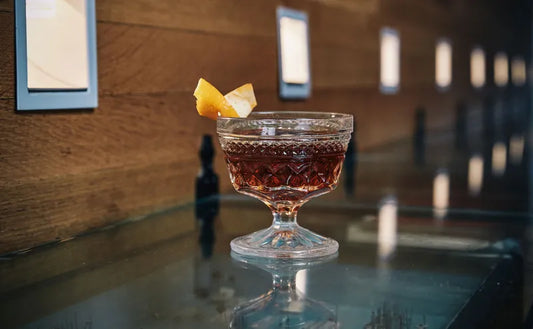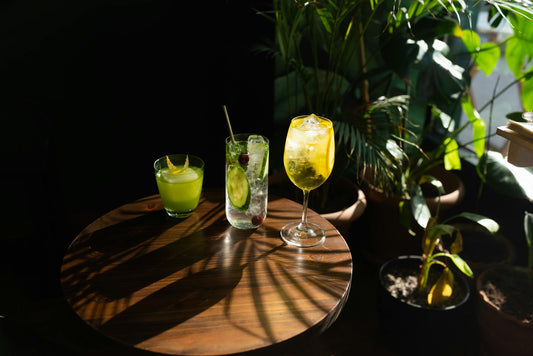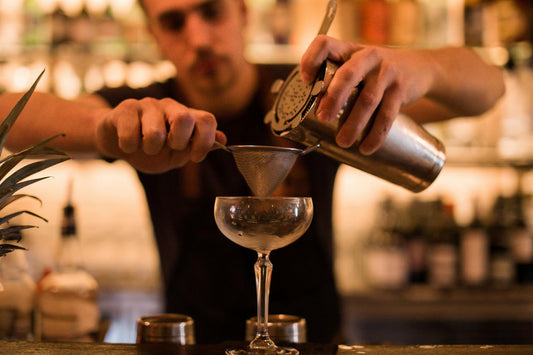Stone Fruit Cocktail: Refreshing Non-Alcoholic Summer Drink
SWEET to SOUR
(1-10)
STRENGTH
(1-10)
CALORIES
STANDARD
DRINKS
Note: these values are approximate and may vary dependent on the ingredients and brands you use.
More information...
The Stone Fruit cocktail is a refreshing and vibrant drink that perfectly encapsulates the essence of summer with its fruity flavors and non-alcoholic nature. This delightful concoction is crafted using Everleaf Forest Non-Alcoholic Aperitif, a unique blend that captures the essence of botanicals and the great outdoors, making it an excellent choice for those who wish to enjoy a sophisticated beverage without the effects of alcohol.
To prepare the Stone Fruit, one simply fills a glass with ice, creating a chilled base that enhances the drink's refreshing qualities. The first ingredient, 50 ml of Everleaf Forest Non-Alcoholic Aperitif, is poured over the ice. This aperitif is known for its complex flavor profile, which includes hints of herbs, spices, and a touch of sweetness, making it a versatile base for various cocktails. The use of a non-alcoholic aperitif is particularly appealing in today's health-conscious society, where many individuals are seeking flavorful alternatives to traditional alcoholic beverages.
Next, 150 ml of white grape and apricot soda is added, which brings a delightful sweetness and effervescence to the drink. The combination of white grape and apricot creates a harmonious blend that is both fruity and refreshing, perfectly complementing the herbal notes of the Everleaf. The soda not only adds flavor but also a bubbly texture that makes the drink lively and enjoyable. After adding the soda, a gentle stir is recommended to combine the ingredients without losing the carbonation, ensuring that each sip is as refreshing as the last.
Garnishing the Stone Fruit is optional, but it can elevate the presentation and add an extra touch of flair. A slice of fresh apricot or a sprig of mint can enhance the visual appeal and provide an aromatic experience that tantalizes the senses. Serving the drink immediately ensures that it is enjoyed at its best, with the ice keeping it cool and refreshing.
With only 90 calories per serving and 0% alcohol by volume, the Stone Fruit cocktail is an excellent choice for those looking to indulge without the guilt. It is a drink that can be enjoyed at any time of the day, whether at a summer barbecue, a picnic in the park, or simply as a refreshing treat at home. The nutritional value is appealing, especially for those who are mindful of their caloric intake, making it a guilt-free indulgence.
The taste profile of the Stone Fruit cocktail leans towards the sweet side, thanks to the natural sugars found in the white grape and apricot soda. However, the herbal complexity of the Everleaf aperitif balances the sweetness, preventing it from becoming overly sugary. This balance makes it a versatile drink that can appeal to a wide range of palates, from those who enjoy sweeter beverages to those who appreciate a more nuanced flavor.
In conclusion, the Stone Fruit cocktail is not just a drink; it is an experience that brings together the best of nature's flavors in a non-alcoholic format. It invites you to savor the moment, enjoy the company of friends, and celebrate the joys of life without the need for alcohol. Whether you are a designated driver, a health-conscious individual, or simply someone who enjoys a good drink, the Stone Fruit is a delightful option that promises satisfaction and refreshment.



